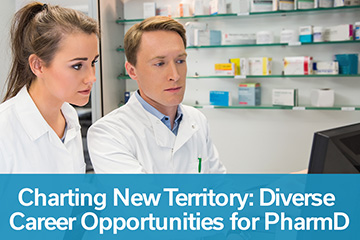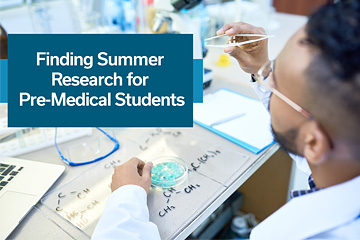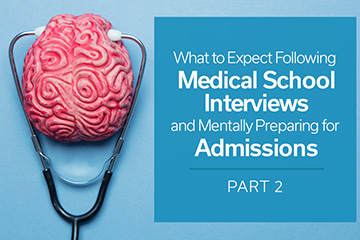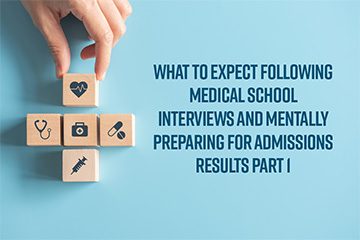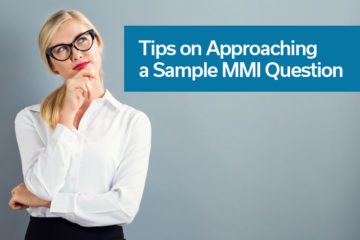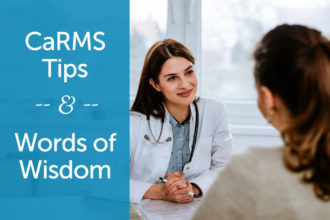
CaRMS Tips & Words of Wisdom
By now, you are probably prepping vigilantly for CaRMS interviews, maybe boarding a plane for interviews, and desperately hoping that your flight won’t be cancelled. I can definitely relate to all of this, as travelling in Canada (especially Eastern Canada where I come from) is challenging in the winter at the best of times. You are also probably anticipating and questioning what the programs will be like, the camaraderie of your potential future co-residents, the amenities and vibrancies of the city you may live in, and evidently the program itself. Hopefully I can provide some tips and advice to help with de-stressing over the next few weeks.
1. Interview Process – This is something with which you are familiar with by now but I will break it down some more:
Structure: I have experienced mainly panel interviews whereby a resident and staff physician interview candidates. There is usually a script of questions by which you are familiar with by now. Some classic questions include:
- Tell me about yourself.
- What drew you to this particular specialty?
- Why this particular program?
- Discuss a clinical experience which you found challenging. What kinds of things did you learn from it and how will you apply that in your future?
- Tell us about an accomplishment you’re proud of that is not medically related
All of these questions are really designed to A) ensure that you really researched the program, B) are genuine, and C) are willing and able to learn and grow as a resident. There are no trick questions! It is meant to learn more about you and will often flow like a conversation. Roll with that!
Clinical Experiences: From my experience, some programs may also have an OSCE-like clinical scenario(s) accompanying the interview. The best thing that you can do when role playing or discussing an encounter is to draw on YOUR experience, emphasize YOUR strengths, but also being unafraid to show “weaknesses”. Think about some clinical scenarios that were challenging and how you navigated through that both clinically and emotionally. Remember that the art and humanism of medicine is as relevant as the scientific portion. Our life experiences really influence our responses and will continue to evolve.
More on the word “weakness”: I am not a huge fan of that word. To me, the meaning of that word serves more as an opportunity to expand and grow on our knowledge and to learn. It often has negative connotations like “not good enough”, but describing a weakness or flaw as an opportunity for growth demonstrates that you are an open-minded and open-hearted individual.
2. Getting to know the program!
Now for the fun bit, or less nerve-wracking bit I should say. You have traveled all this way to an unfamiliar city, perhaps – to see whether it is a good fit for you. Residents and staff are there to answer any questions you may have about the program. Yes, it is always good to make a solid impression. However, if you have any questions about the city or program, now is the time to ask.
There are usually hospital or clinic tours available to participate in. It is important to observe and compare the hospital environment, as you may be spending a good chunk of time there and you want to be as comfortable as possible in your work environment.
There are also excellent socials whereby you can you further get to know other candidates and residents. I definitely encourage you to go to these. Free food is one reason! But this is where you can really appreciate the dynamics of other residents. Everyone has different personalities and it is difficult to really appreciate this in a few hours, but these people are going to be your rocks and support system for the next several years. Getting along with other residents is important!
If you have time as well, try to explore the city a bit. Get a feel for the housing situation, transit system, amenities, and entertainment available that is important to serve your interests and lifestyle. I currently live in Kingston, and absolutely love that there is an independent cinema here as I am a huge movie geek!
3. Ranking!
So the interviews are over and the ball is in your court for another period of time. This is the time when you can really evaluate and analyze the aspects of each program that jive well with you and those that don’t. The order of importance for a rank list can vary depending on what is important to you – location, specialty, hospital environment, distance from home, etc. However, I think that choosing the specialty that feels the most appropriate for you is the most important. I have switched through specialties and gone through CaRMS twice (maybe another blog post for another time!). It can be done, but it is not easy! So bottom line, go with your gut!
4. Be Yourself!
Everything I said previously all boils down to one principle – be yourself. Authenticity is something that has carried you to this point and will continue to do so. By choosing a program based on your interests, values, and principles, you will never go wrong and you will succeed.
Best of luck with the whole CaRMS process!

